Toyota has finally won the 24 Hours of Le Mans. The Aichi automaker broke their long-running curse at one of the world’s most prestigious races this morning, when their two TS050 race cars crossed the finish line in 1-2 position. Though it must have been satisfying to at last attain this elusive goal, in some ways the victory seems bittersweet.
That’s because this year, Toyota was the only carmaker to compete in LMP1, the race’s top class. As the only cars with factory support, the Toyota hybrids were notably faster than the rest of the LMP1 field, which consisted entirely of privateers. Porsche and Audi, its major competitors, dropped out last year after parent company Volkswagen pulled the plug in the wake of its diesel scandal.
Still, as previous attempts have shown, simply having the fastest cars and drivers is no guarantee of victory at Le Mans. Simply finishing a solid day of all-out driving without crashing, being crashed into, mechanical difficulties, and overcoming fatigue is an achievement in itself.
In the end, it was the No. 8 car of Fernando Alonso, Kazuki Nakajima, and Sébastien Buemi that crossed the line in first. Nakajima, who set the fastest lap time during qualifying and put the team in pole position, was in the driver’s seat at the moment of the historic finish. A Japanese driver (born in Toyota’s home prefecture of Aichi, no less) behind the wheel of a Japanese car (Seiji Ara and Masanori Sekiya won in an Audi and McLaren, respectively) in the top class is a Le Mans first, and the 33-year-old will no doubt receive a hero’s welcome when he returns home.
His co-driver, Spain’s Fernando Alonso, gets one step closer to winning the racing world’s “triple crown.” Having now achieved championships at in Formula 1’s Monaco Grand Prix and Le Mans, only the Indy 500 remains.
The No. 7 Toyota followed in second place driven by Mike Conway, Kamui Kobayashi, and José María López. Kobayashi qualified his car in second place, exactly two minutes behind Nakajima, but it should be noted that Kobayashi still holds the all-time qualifying lap record from his 2017 run. The car finished two laps behind, after a missed pit stop and minor penalty slowed the sister car.
The 2018 race marks Toyota’s twentieth attempt, which started officially in 1985. No other automaker has been so poised to win and yet been cursed as badly as Toyota, leaving them with five second-place finishes and several impossibly close victories denied by fate’s cruel hand. In 1999, for example, Ukyo Katayama, Keiichi Tsuchiya and Toshio Suzuki’s Toyota GT-One was on pace to finish first, but blew a tire in the final hour.
In 2016, Nakajima found himself in the same position as he did this year, in the lead Toyota about to cross the finish line. Five minutes before the end of the race, however, the car came to an abrupt stop on the final lap, the result of a connector between the turbo and intercooler failing.
By 2017, after so much heartbreak, Toyota’s became the crowd favorite, but ironically that support is what led to their downfall. Their fastest car was taken out when a driver from another team, whose suit happened to be in the same orange as the safety workers’, tried to show his support. A thumbs up to Kobayashi in the pits prompted the driver to begin take-off before the car was ready, resulting in a damaged clutch.
Finally, this year, at the 86th running of Le Mans, Toyota won. “I am so proud of everyone in the team for this result. It has been our dream to win Le Mans and finally we have achieved it,” said team president Hisatake Murata. “Thank you so much to everyone for their incredible hard work, team spirit and never-give-up attitude. To win Le Mans for TOYOTA after so many frustrations and disappointments is a truly magical moment.”
After his gut-wrenching near miss in 2016, Nakajima got emotional. “It’s great to be here finally; it has been a long time. I am almost speechless,” he said, before echoing the notion of a long-held dream finally realized. “To win this race has been a big dream for all of Toyota since 1985.”
If Toyota simply wanted the win, it could retire happy now. But, we learned yesterday that the company intends not only to continue participating in Le Mans, but is spearheading an effort to create a new top class that will translate more easily to spectacular road cars.
“Finally, we won 24 Hours of Le Mans this year. Of course this is another step towards the next challenge so I would like to ask your continuous support from now on too,” president Akio Toyoda remarked.
Then he reaffirmed the production of a Le Mans prototype-based supercar. “We are developing a road car from a race car competing in the Le Mans,” he confirmed. “I believe that we took one step closer to the realization of the project.”
Images courtesy of Toyota.


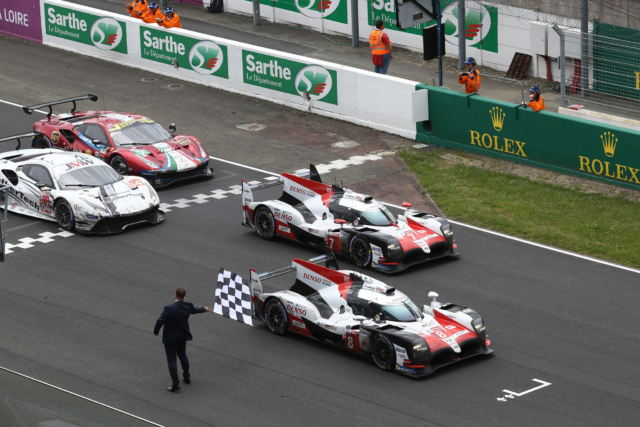
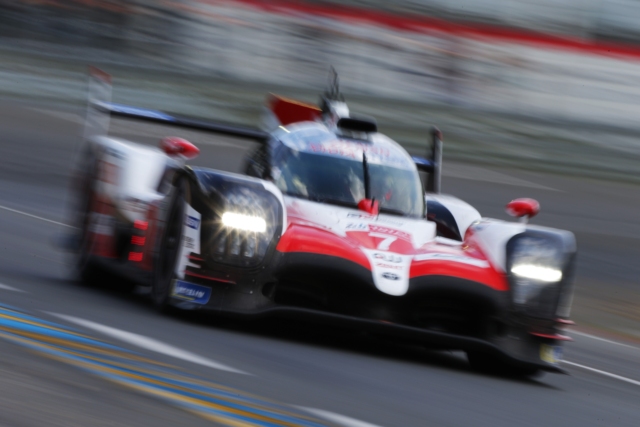
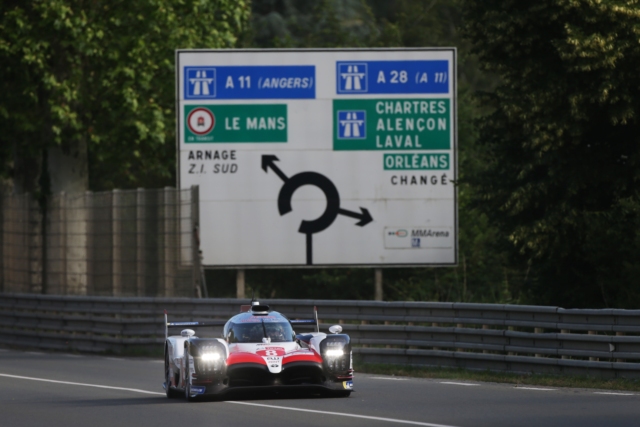
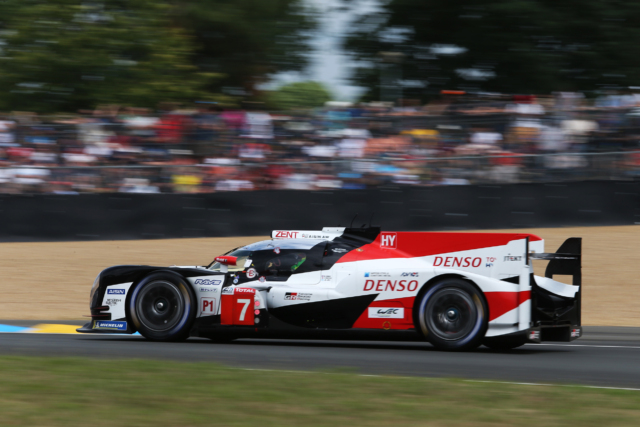
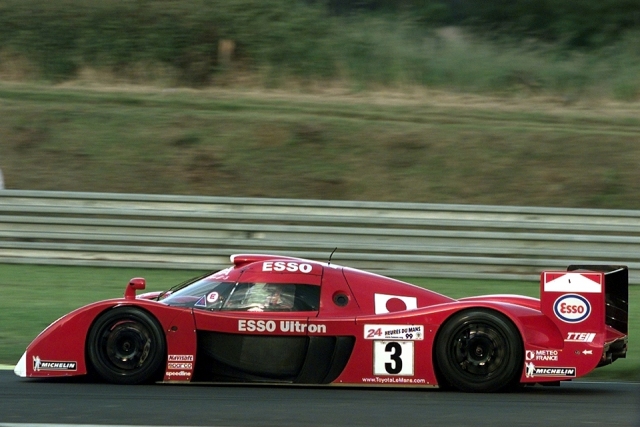
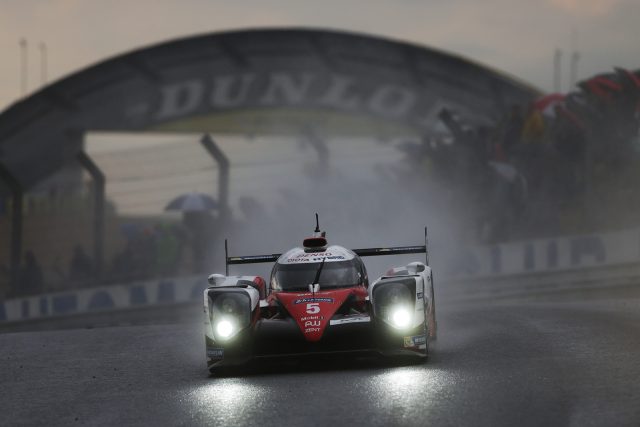
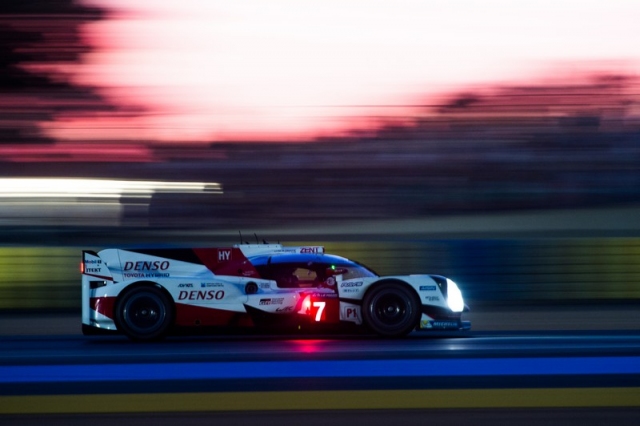
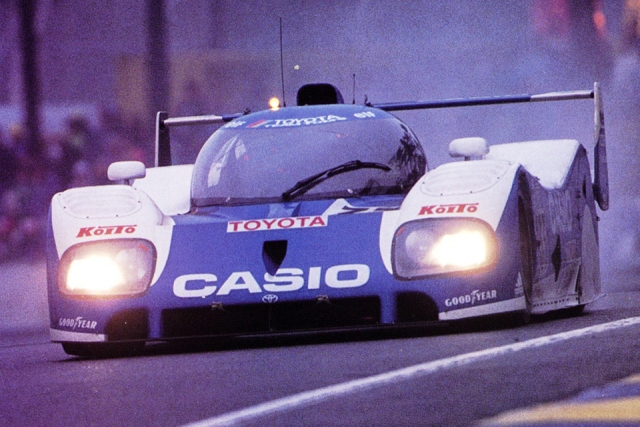
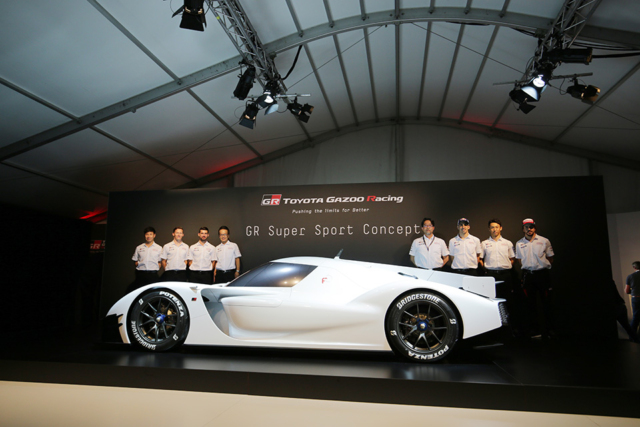




I’m pretty sure they could’ve won earlier by just running a bone-stock Toyota Camry in the first place. Those things were hard to kill, and look at how many survived well past their expected death dates.
Congratulation Toyota!!!
you are the biggest carmaker in the world, 27 years behind of Mazda in Lemans, now what??? Win fórmula 1???
Joke aside, big effort and Big reward, now make fun and affordable rwd Cars, like the Miata.
Hahaha! Good joke at the GT86’s expense, eh? Hehehe.
They already do make affordable rear-wheel drive cars.
Two words:
1. Finally!
2. Hurray!!
I was elated to watch the TS050 win. Toyota has come too close on too many occasions only to suffer heartbreak. This was overdue vindication for the maker of some of the prettiest and best sounding prototypes to grace endurance racing. The 84C, 88C-V, 90C-V, and TS010 immediately come to mind, and while it didn’t run at Le Mans, the IMSA Camel GTP series’ Toyota Eagle MkIIs fielded by Dan Gurney’s AAR are the stuff of legend.
To clarify, while Alonso does have an F1 title, the Formula One component of the triple crown is to win the awesome celebration of insanity on four wheels that is the Monaco Grand Prix.
I made the edit, thanks!
Also not to be too picky, but the second car qualified a hair over 2 seconds off the pole, running in the 3:17s from the 3:14s.
While it is true that Toyota had no competition in P1 that featured the FIA WEC’s and ACO’s rule-favoring hybrid technology, that was not something Toyota could control. It is worth noting that the last two years, the Toyota definitely had the pace to win and that if not for that freak incident in the pit lane last year, this might very well be the Aichi-based manufacturer’s second win, regardless of the competition present. Toyota brought four current or ex-F1 drivers with a car that likely would have won regardless, not that we can ever know for sure, of course.
Again, well done Toyota! Hats off to Gazoo Racing!
As for the upcoming Toyota hypercar, this will fit into the upcoming rule changes for Le Mans in a few years, as the rules willl bring back street-based cars in the top class, as was the case during the GT1 era, except that these will be hybrids. Several other manufacturers have already expressed interest in this, but Toyota is the first to have a car already in mind, from what I can tell.
Congratulations to Toyota. Not only the racing team but the entire company. I understand the “bittersweet” but looking at the big picture, they won fair and square. Dieselgate is just as much a component as a broken clutch. It will be interesting to see how the sport will evolve & I hope it will be a golden opportunity. I was disappointed with thier departure from F1 years ago but this more than makes up for it. In the developing age of autonomous cars, I welcome Toyota for, excuse the pun, bringing back the “ultimate driving experience”. (1.) Thank you!
1. Ouch!?
You’re absolutely right about Dieselgate being just as much as a factor. After all, companies compete in Le Mans because they’re selling cars in the “real world” first and foremost. Well said!
Toyota wins the 86th Le Mans? 8-6?! Nani?! *queue eurobeat*
?
ROFLMFAO XDDDDD I knew this is going to happen
Audi broke LeMans so it has nowhere near the relative cachet and importance it used to have. They beat everybody so bad and so relentlessly, that they could virtually never find any takers after about 5 years of owning everyone. Which is directly what led to these “bittersweet” circumstances of Toyota winning because nobody else bothers challenging anymore. And prior to the 90s, even though prototype closed wheel sportscars didn’t *actually* have much to do with real cars, the romanticism of “racing dna” was certainly plausible enough when it was Porsche, Ferrari, and things like a GT40 or a rotary Mazda winning. When Audi showed up and dominated with such thoroughness and consistency as they did, it put that lie to rest. Because even now nobody looks at even the fast Audis like an S4 and is thinks of R8 or R10 racecars. Prototypes have nothing to do with cars enthusiasts actually follow so interest in the series has plummeted. Audi broke LMP racing.
I’m 100% on board ahja. I used to absolutely love it, but the complete domination by one marquee (VAG) really soured it.
Then again, I’ve wondered if it’s me or the series I’m watching. I used to stay up to all hours to catch WRC live but it’s lost it’s appeal; F1 is a boring procession, WEC was a foregone conclusion, NASCAR has never interested me (despite going in person to a few), etc.
I’m curious what they could do to bring Le Mans back. I’d say no more LMP classes, homologomated cars only, which ironically seems to be what Toyota wants to do.